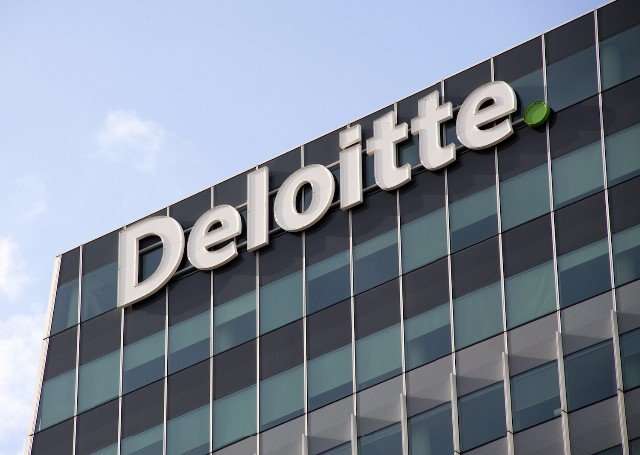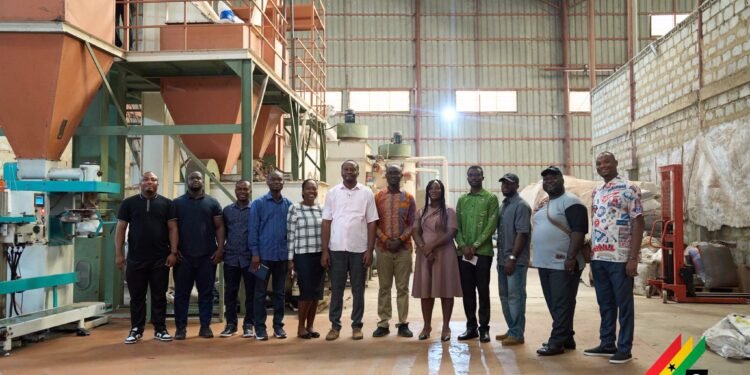Ghana’s high interest rate environment continues to constrain access to credit for businesses in the real sector, according to the latest West Africa Monetary Policy Committee (MPC) Update by professional services firm Deloitte.
The report comes in the wake of the Bank of Ghana’s decision to maintain the monetary policy rate at 28% in May 2025, a move aimed at containing inflationary pressures while ensuring macroeconomic stability.
The Bank of Ghana’s Monetary Policy Committee (MPC) decided to hold the policy rate at 28% in May 2025. The central bank cited persistent inflationary pressures as the key reason, despite the relative stability of the Ghana cedi and signs of fiscal consolidation. Deloitte supports this cautious stance, noting that maintaining the current policy rate will help in curbing inflation risks and keeping the economy on a path toward stability.
Deloitte also highlighted that the Bank of Ghana expects to reach its inflation target of 12% by early 2026—assuming no external or internal economic shocks derail this trajectory.
Limited Credit Availability for Real Sector
One of the critical implications of the elevated policy rate, according to Deloitte, is its impact on credit availability to the real sector. The firm noted that businesses, particularly small and medium-sized enterprises (SMEs), are facing difficulties in securing affordable financing. This is largely due to the high cost of borrowing, which has resulted from the central bank’s tightening stance on monetary policy.
“While the policy rate remains a necessary tool to manage inflation and attract capital inflows, it comes at the cost of reduced access to credit for key growth sectors,” Deloitte stated. The limited flow of credit could hamper economic recovery, reduce productivity, and constrain the expansion of industries that form the backbone of Ghana’s economy.
Despite the constraints, Deloitte acknowledged some benefits of the high-interest rate environment. The report points out that Ghana is currently experiencing positive real interest rates, which have made high-yield government securities more attractive to investors. This has led to stronger capital inflows and improved investor confidence in the short term.
“Positive real returns have attracted capital and strengthened the local currency,” Deloitte explained. However, the firm warned that such a strategy must be carefully balanced with the need to support domestic enterprises, especially as Ghana’s private sector continues to face liquidity challenges.
Banking Sector Resilience Amid High NPLs
Interestingly, Deloitte’s update noted that Ghana’s banking sector remains resilient despite the high interest rate environment. Banks are reportedly well-capitalized and maintain sufficient liquidity, even though non-performing loans (NPLs) remain elevated.
This resilience, Deloitte argues, provides a buffer for the financial system and supports the central bank’s decision to prioritize price stability over aggressive monetary easing. However, the lingering credit constraints still call for targeted interventions to ensure that liquidity is channeled into productive sectors of the economy.
While Ghana’s macroeconomic indicators show signs of improvement, Deloitte raised concerns about lingering inflationary pressures. These include recent utility tariff adjustments and the potential spillover effects from global economic developments, such as ongoing trade tensions and volatile energy prices. “External shocks such as global crude oil price declines and trade policy uncertainties, especially from the U.S., pose risks to our inflation outlook,” the report stated.
Deloitte emphasized that achieving sustainable economic recovery will require a delicate balance between fiscal and monetary policies. While the central bank continues its cautious approach to inflation control, the government must also implement fiscal strategies that complement these efforts and address structural bottlenecks in the economy. “There is a pressing need for coordinated policy actions that not only stabilize the macroeconomy but also unlock growth potential in the real sector,” Deloitte noted.
While the current monetary stance supports macroeconomic stability and investor confidence, it also restricts credit availability for businesses vital to industrial growth and job creation. To achieve long-term prosperity, Ghana must strike a careful balance—ensuring price stability while creating a supportive environment for real sector expansion.
READ ALSO: GSE Composite Index Rebounds Slightly Despite Weekly Losses























